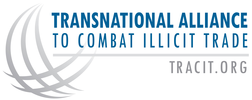Our 15 most Frequently-Asked-Questions
|
1. What is illicit trade?
Generally, illicit trade involves the production, import, export, purchase, sale or possession of goods, services, humans or wildlife in violation of applicable laws. Whether the activity, such as logging, is illegal depends on the legal framework established by individual States and/or international treaties. Consequently, illicit trade is also referred to illegal trade deriving from the illegal nature of the activities.
2. Which industries are vulnerable to illicit trade?
Illicit trade is a major problem for a growing number of industries such as agri-foods, alcohol, fisheries, forestry, pesticides, petroleum, pharmaceuticals, precious metals and gemstones, retail and tobacco. It includes trafficking in persons, wildlife and all forms of products vulnerable to trademark counterfeiting and copyright piracy.
3. What about narcotics and arms?
Illicit trade also notoriously includes illegal trade in narcotics, arms trafficking, and the robbery and resale of antiquities and cultural artifacts. TRACIT, however, does not currently focus on these activities.
4. How big is the problem?
The World Economic Forum estimates financial losses across 11 industrial sectors at US$1.6-2.2 trillion per year. This means businesses are unable to compete fairly; to invest to the maximum extent to protect and create jobs and products; and to increase their profits and make higher contributions to local, state and national taxes. Collectively, the value of illicit trade and transnational criminal activities are estimated at between 8% and 15% of global GDP.
5. Why do we need to be concerned about illicit trade?
6. TRACIT is a business initiative, so what are the impacts on business?
Damages to businesses include:
7. What does this mean for consumers?
8. What does this mean for the supply chain?
The globalization of trade has dramatically multiplied the number of intermediaries and increased the complexity of global supply chains, where intermediaries who supply raw materials, package, transport and deliver goods, or provide web-based services consumer services are based in a variety of different countries and trade cross national borders. The greater the number of intermediaries and the more elaborate the supply chain, the more vulnerable the system is to infiltration and exploitation by illicit traders.
Illicit traders use the infrastructure of the legitimate economy to conduct their business, which generates additional costs and risks for legitimate business. These costs and risks are both individual (e.g., monitoring, compliance, liability, reputation, health and safety of consumers) and systemic (e.g., possible major disruptions of the global supply chain). 9. What can be done to better secure supply chains?
10. How does illicit trade affect national economies?
11. What currently is being done to deal with the problem?
Large multinational businesses have people, resources and extensive compliance programs aimed at assuring their products are sourced and produced with legitimate components. These entities generally track and fix issues associated with their vulnerabilities, work with governments, law enforcement and customs officials with jurisdiction in areas through which their products travel. Governments are increasingly realizing it is essential to work together with the private sector to share trends and intelligence as well as to enforce existing legal standards and tools. But illicit trade has grown well beyond the capabilities of individual governments and individual companies, and now demands a sustained, coordinated response.
12. What is TRACIT?
TRACIT is organized as a non-governmental, not-for-profit organization under US tax code 501(c)(6). Membership is open to corporations and select trade associations committed to mitigating the economic and social impacts of illicit trade.
TRACIT's membership includes businesses and trade organizations from across the world. Currently, issues are addressed within industry segments and through cross-cutting approaches. The industry sectors include: alcohol; agri-foods; fisheries; forestry; pesticides; petroleum; pharmaceuticals; precious metals and gemstones; retail; and tobacco. The work program also focuses on addressing trafficking in persons, wildlife and all forms of products vulnerable to trademark counterfeiting and copyright piracy. The membership-driven organization is led by a Board of Directors, Executive Committee, Advisory Group and a Secretariat composed of a Director-General, Deputy Director-General and expert staff. For more information, visit our ABOUT pages on this site 13. Why TRACIT? Why now?
Illicit trade has grown well beyond the capabilities of individual governments and individual companies, and now demands a sustained, coordinated response. Connecting and mobilizing businesses across industries, sectors and national borders makes it possible to achieve results more effectively than any single actor can accomplish alone.
TRACIT is a not-for-profit private sector initiative focused on mobilizing the international business community and specific industry sectors most affected by illicit trade. Business has an important role to help shape the political and regulatory response to illicit trade – and to help itself across sectors by sharing intelligence, data, resources and measures demonstrated to effectively control illicit trade and associated supply chain abuses. TRACIT draws from industry strengths and market experience to build habits of cooperation between business, government, intergovernmental organizations and the diverse group of countries that have limited capacities for regulatory enforcement. 14. What Is TRACIT’s work program?
TRACIT’s principal objective is to help shape the regulatory response to illicit trade so as to reduce and ultimately eliminate illicit trade. The organization leverages the political momentum against the social and economic consequences of illicit trade to:
For more information, visit OUR WORK PROGRAM pages. 15. Who should join TRACIT and what are the membership levels?
Businesses who are facing market disruptions due to illicit trade of their products are welcome to join TRACIT to work collaboratively with other members companies facing similar problems in the same or other industry sectors. There are two membership levels: Full members contribute US$25,000 p.a. and Associate Members contribute US$10,000.
For more information visit our JOIN page. |
Vertical Divider
|
